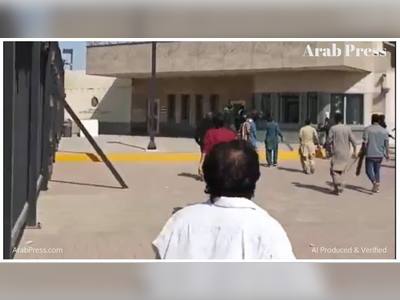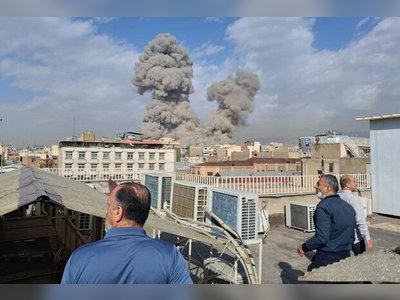Global Reactions to ICC Arrest Warrants: Netanyahu and Deif Face Charges, While Geopolitical Tensions Escalate
ICC's arrest warrants for Netanyahu and Deif spark global debate; Trump appoints Pam Bondi as Attorney General amid U.S. political turmoil.
In a dramatic international development, the International Criminal Court has issued arrest warrants for Israeli Prime Minister Benjamin Netanyahu and Hamas military chief Mohammed Deif, sparking diverse global reactions. While countries like Turkey and certain rights groups have applauded the move as a step towards justice, nations such as Israel, the United States, and Argentina have criticized it, arguing it undermines Israel's self-defense rights.
Meanwhile, controversy continues to swirl in the U.S., where past sexual assault allegations against Pete Hegseth have resurfaced amid scrutiny of former Congressman Matt Gaetz, who has stepped back from consideration for Attorney General amid his own misconduct issues. Hegseth denies the claims, stating interactions were consensual, and prosecutors did not pursue charges due to a lack of evidence, yet the allegations re-emerge at a politically tense moment.
In the wake of Gaetz's withdrawal, President-elect Donald Trump has appointed longtime ally Pam Bondi as the new U.S. Attorney General. Bondi is set to steer the Justice Department in alignment with Trump's agenda amid ongoing critique regarding the direction of the department, particularly concerning civil rights and enforcement priorities.
Over in Asia, North Korea's leader Kim Jong Un has pledged unlimited nuclear expansion, criticizing U.S. hostility during recent military exhibitions. As he emphasizes weapon build-up to counter perceived threats, North Korea's growing ties with Russia signal added tension in a region already on edge due to geopolitical pressures.
The Middle East sees its own upheaval as Israeli airstrikes in Lebanon have resulted in significant casualties, with ongoing rocket attacks from Lebanon striking northern Israel. Amid these escalating confrontations, U.S. mediator Amos Hochstein is actively engaging with both sides to negotiate a ceasefire, reflecting the complex dynamics of this enduring regional conflict.
Shifting focus to environmental issues, South Korea grapples with its own challenges in managing plastic waste despite its green reputation. As the nation prepares to host the INC-5 talks in Busan, there is a growing call for substantial reforms, with activists emphasizing the need for cultural shifts and stricter regulations to overcome the influence of the powerful petrochemical sector.
Meanwhile, controversy continues to swirl in the U.S., where past sexual assault allegations against Pete Hegseth have resurfaced amid scrutiny of former Congressman Matt Gaetz, who has stepped back from consideration for Attorney General amid his own misconduct issues. Hegseth denies the claims, stating interactions were consensual, and prosecutors did not pursue charges due to a lack of evidence, yet the allegations re-emerge at a politically tense moment.
In the wake of Gaetz's withdrawal, President-elect Donald Trump has appointed longtime ally Pam Bondi as the new U.S. Attorney General. Bondi is set to steer the Justice Department in alignment with Trump's agenda amid ongoing critique regarding the direction of the department, particularly concerning civil rights and enforcement priorities.
Over in Asia, North Korea's leader Kim Jong Un has pledged unlimited nuclear expansion, criticizing U.S. hostility during recent military exhibitions. As he emphasizes weapon build-up to counter perceived threats, North Korea's growing ties with Russia signal added tension in a region already on edge due to geopolitical pressures.
The Middle East sees its own upheaval as Israeli airstrikes in Lebanon have resulted in significant casualties, with ongoing rocket attacks from Lebanon striking northern Israel. Amid these escalating confrontations, U.S. mediator Amos Hochstein is actively engaging with both sides to negotiate a ceasefire, reflecting the complex dynamics of this enduring regional conflict.
Shifting focus to environmental issues, South Korea grapples with its own challenges in managing plastic waste despite its green reputation. As the nation prepares to host the INC-5 talks in Busan, there is a growing call for substantial reforms, with activists emphasizing the need for cultural shifts and stricter regulations to overcome the influence of the powerful petrochemical sector.










